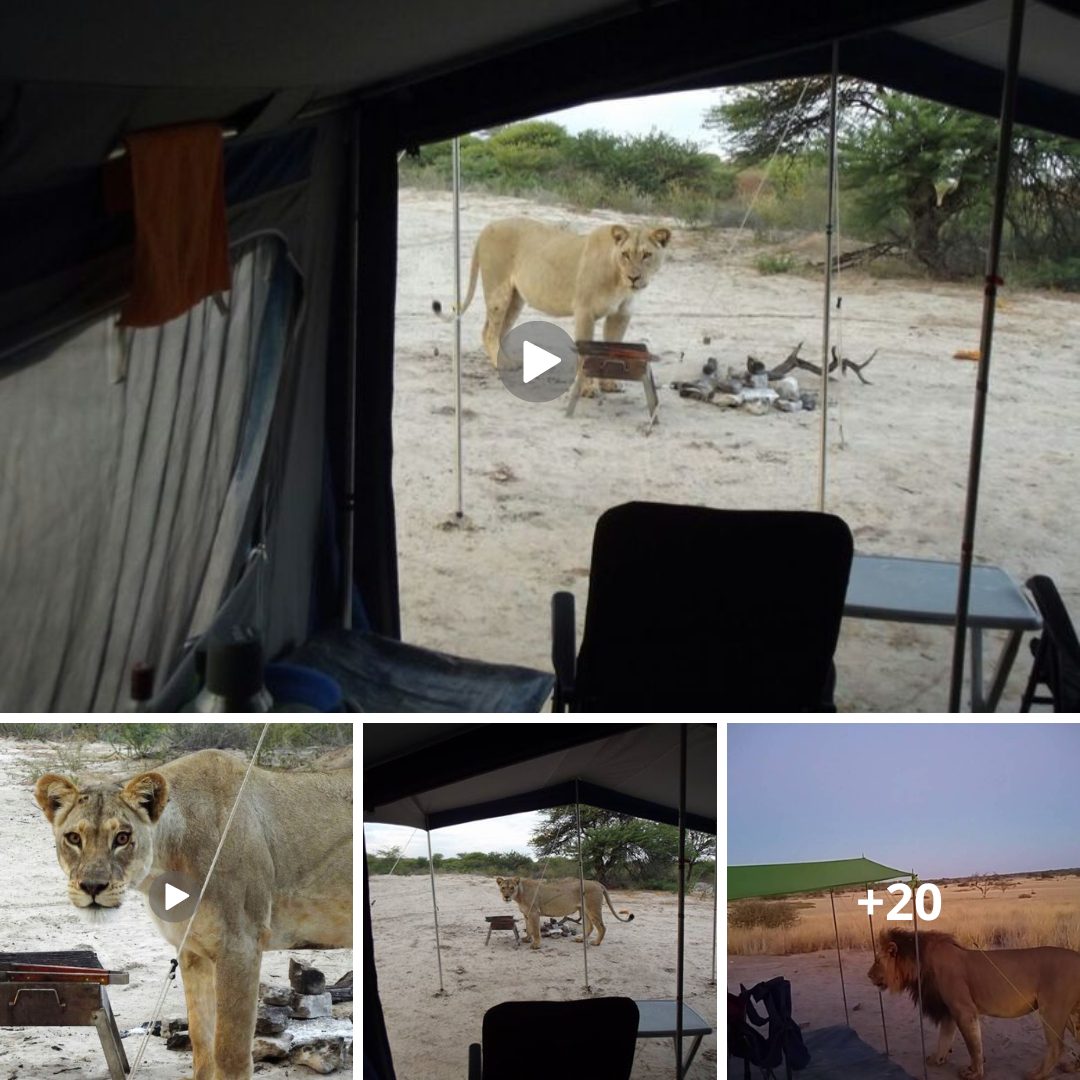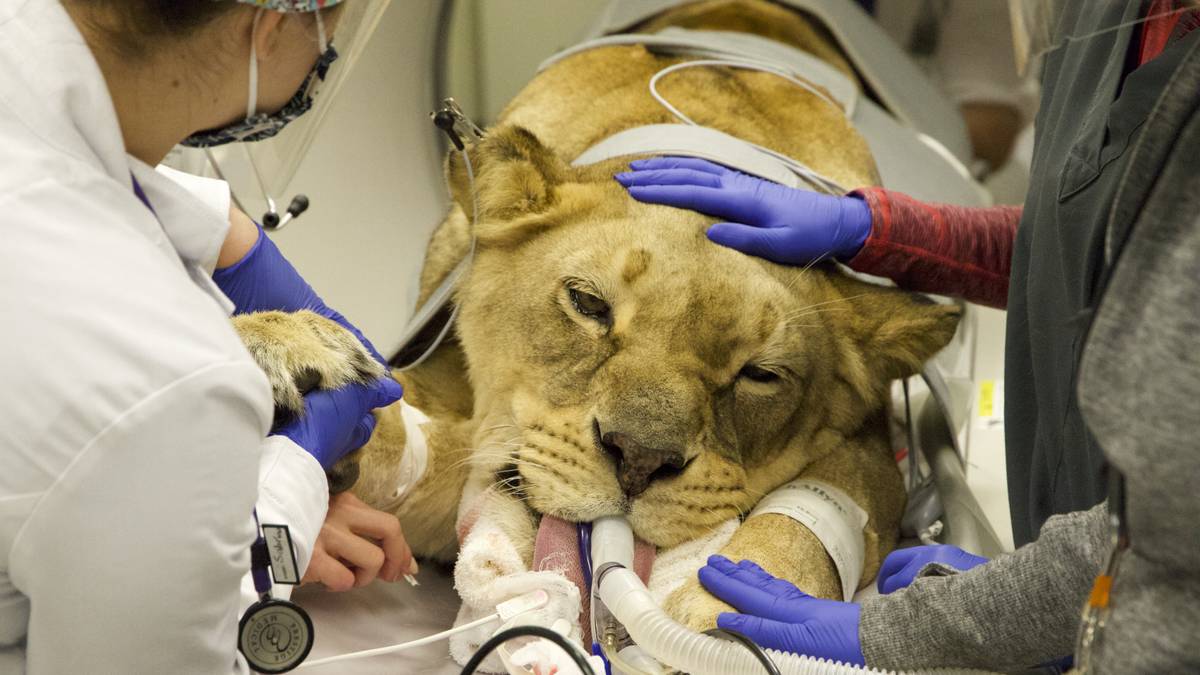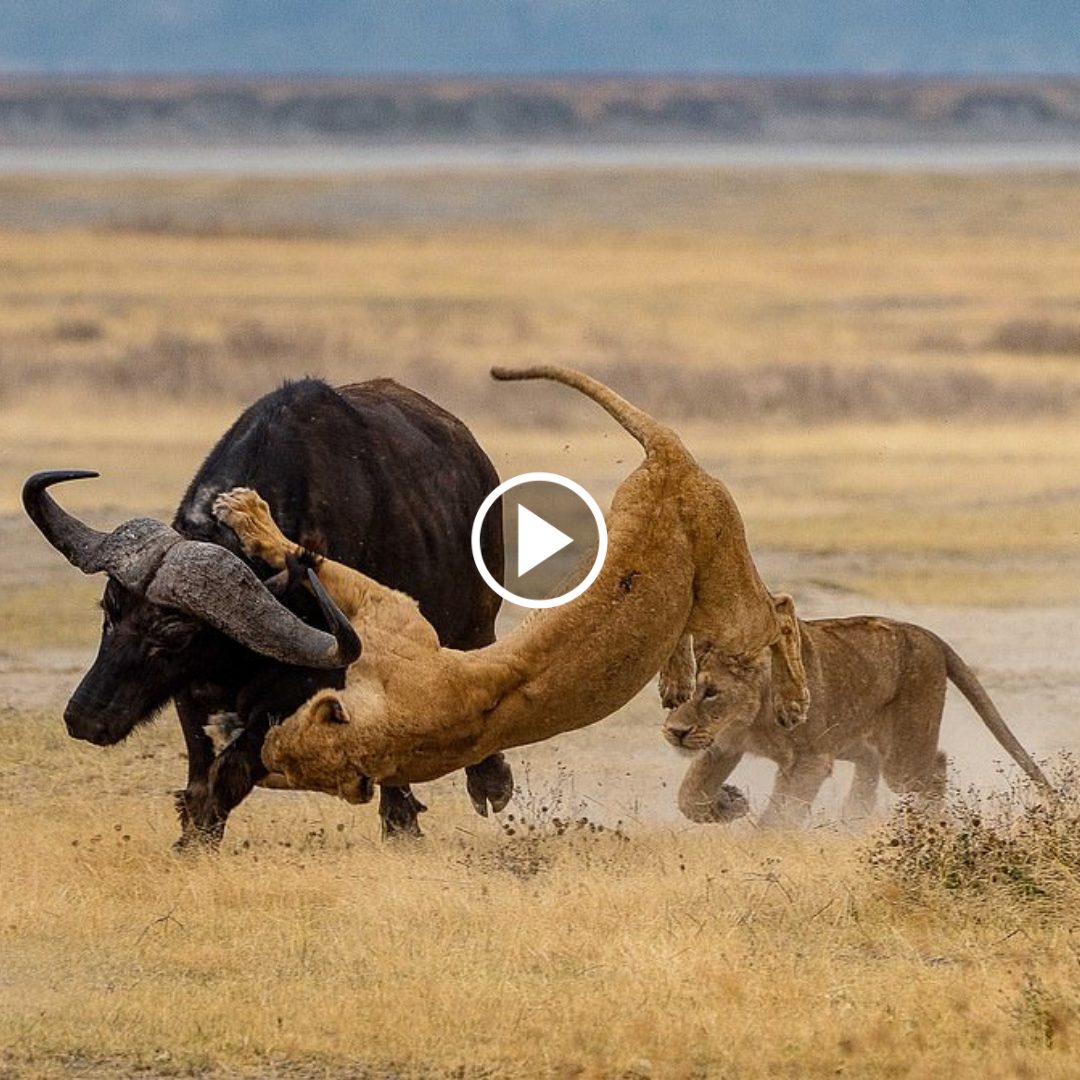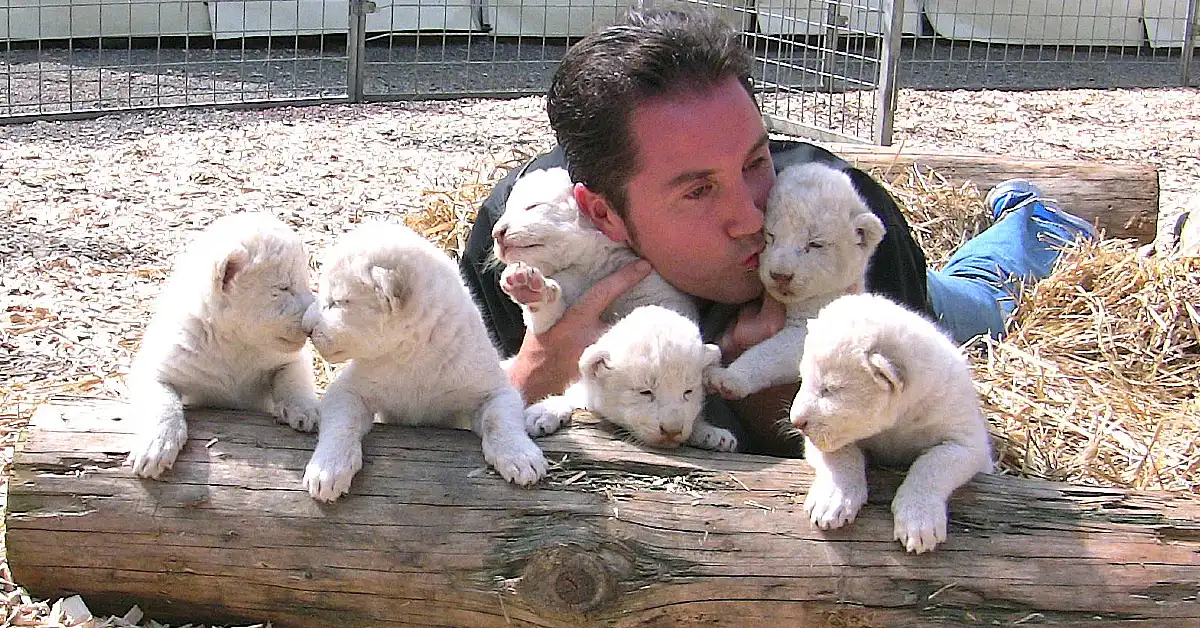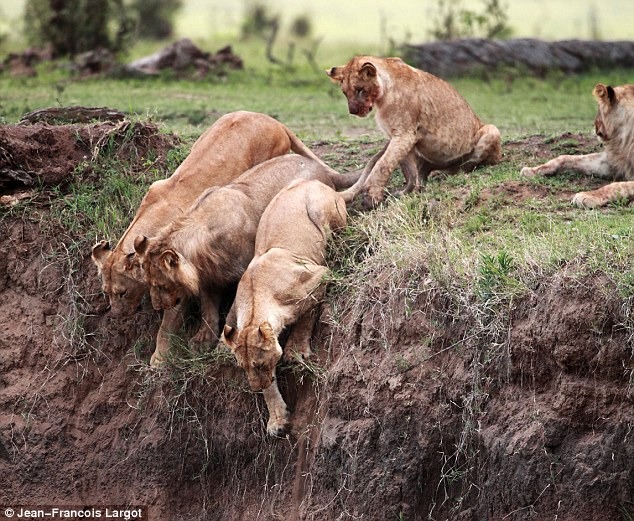It is not the most welcoming place on Earth. But even in the Arctic you can find a friendly face willing to show you around.
These remarkable pictures show how beluga whales help human visitors to swim under the thick ice.
When dive teams drill through the frozen surface of the White Sea off the north-west coast of Russia, they are greeted by grinning belugas.

Up close: A diver swims with two white beluga whales under the ice in the White Sea, Russia

Cold work: ‘Buddy teams’ dig out huge chunks of ice using a hand-powered drill to create dive holes in the White Sea, Russia
Under the water two belugas lead a diver by delicately taking his hands in their mouths and pulling him through the icy darkness.
Photographer Andrey Nekasov, 38, from Odessa, Ukraine, visited the White Sea – off the Barents sea on the north-west coast of Russia – which is popular for spotting pods of the all-white swimming mammals.
Some of the whales in the area were formerly captive but reintroduced to the wild after being rehabilitated.
Curious by nature, the whales greet dive teams as they cut dive holes into the thick Arctic ice by popping their heads out.
Once underwater, divers often get to play games with the whales as they explore and seemingly show off to their guests.
‘The White Sea is a whale sanctuary and belugas have been released here from zoos and marine parks,’ Mr Nekasov said.
‘They are breeding well and there are many babies.’
Belugas have 40 small conical teeth which they use to grasp fish.
The photographer added: ‘With this diver they were gripping his hand very gently and pulling him along. It was a lot of fun.

Ice to meet you: The whales swim to the surface to greet the divers

Underwater love: The two beluga whales swim with a diver near the opening of the dive hole
‘The whales are really interested in what’s going on around them and they use their mouths a lot to feel things.’
Andrey and the team travelled to the dive area on a snow mobile.
Organisers from the Arctic Circle Dive Centre cut holes in the ice using hand-powered drills call borers.
After removing the huge slabs of thick ice, divers are submerged on a rope and swim at depths of around five metres below the surface.
Andrey added: ‘Diving with the belugas is really popular because they are so friendly. When we are preparing to dive they pop their heads out and watch everyone getting ready.
‘It’s like they are beckoning you in to come and play.’
